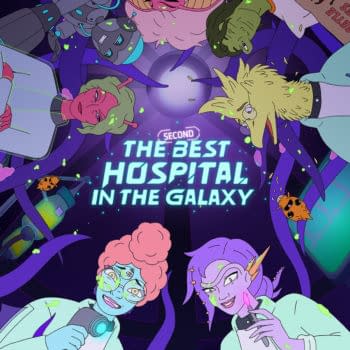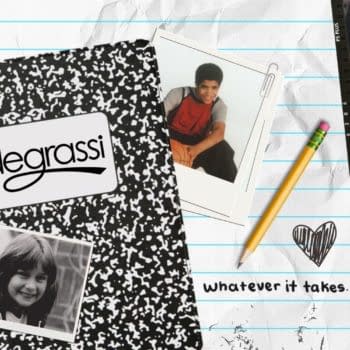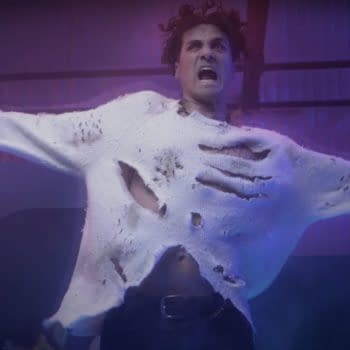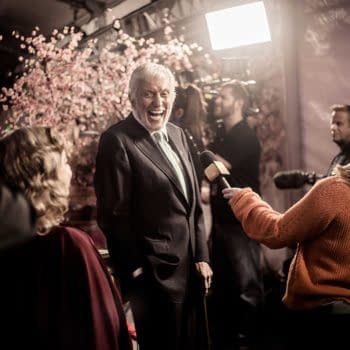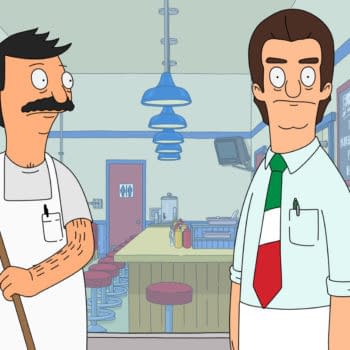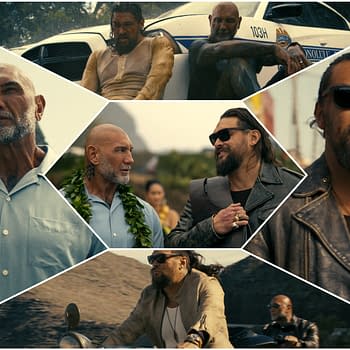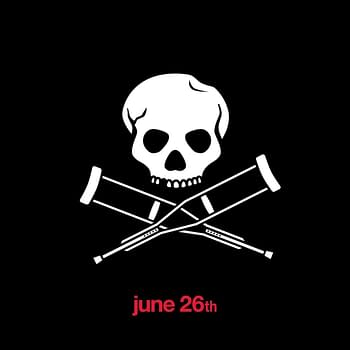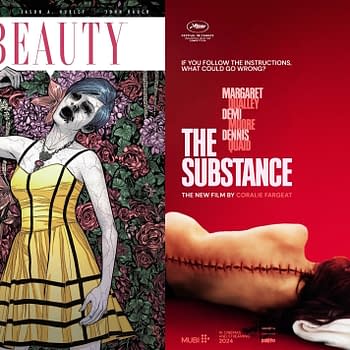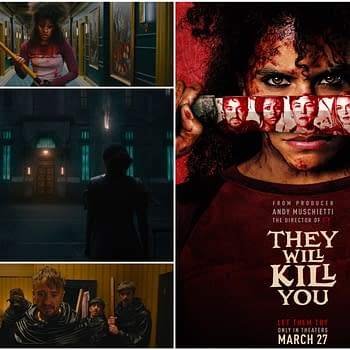Posted in: Interview, Movies, Sundance | Tagged: abortion, abortion rights, documentary, interview, Meredith Perry, Plan C, Roe V. Wade, sundance, Sundance 2023, Tracy Droz Tragos
PLAN C: Director & Editor Talk Sundance Film & Abortion Rights
We chat with Meredith Perry & Tracy Droz Tragos about their film , PLAN C, premiering at Sundance & access to safe abortions.
We chatted with the director, Tracy Droz Tragos, and editor, Meredith Perry, about their feature documentary film, PLAN C, which premiered at this year's Sundance Film Festival. The documentary focuses on a long-time goal for access. There are people out there you wish you had known about (and supported) a long time ago. Francine Coeytaux is one of those people. She has spent decades working in public health and focusing on new reproductive technologies, including developing emergency contraception. PLAN C has a lot of heart behind it, and we chatted with the two behind it all.
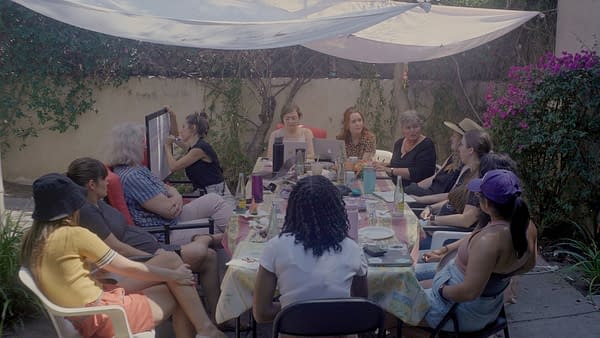
PLAN C Began with Francine Coeytaux & Abortion Access
With abortion restrictions and bans going into effect, Coeytaux and her team of providers established Plan C — a grassroots organization dedicated to expanding access to medication abortion. Tracy (co-director of Rich Hill, U.S. Documentary Grand Jury Prize, 2014 Sundance Film Festival) accompanies the team as they look for ways to distribute abortion pills while following the letter of the law. Unmarked vans serving as mobile clinics distribute medication to those who cannot get help in their own states. Countless calls are coming in daily from women desperate to be "un-pregnant." Plan C's team works tirelessly to ensure they are not alone.
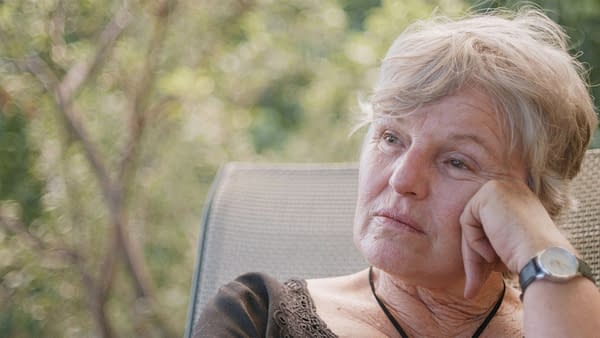
Meredith & Tracy Discuss the Work of PLAN C
What has been your experience with Adobe Premiere Pro editing film before this project, and how has it changed since completing your work?
MEREDITH:
I've been editing primarily in Adobe Premiere Pro since 2014. I love Premiere's versatility, built-in effects, and animation abilities. PLAN C was a massive undertaking, with over 300 hours of footage shot in 14 states over four years. In order to keep my project nimble, I paired it down to the essentials and drew from other, larger projects. I had my selects and string-outs project and also key "milestone" projects, for example, a project with my enormous first assembly (3.5 hours long). Premiere is a workhorse and is constantly improving and adding new features. I did the final VFX work on PLAN C without stepping out to After Effects. I couldn't be happier using Premiere as my primary editing software.
TRACY:
I've been editing with Adobe Premiere Pro since 2010, when we made Rich Hill (Sundance' 14). Both Andrew Droz Palermo and I did a lot of editing on the project before we brought Jim Hession on, and to me, the barriers to getting up to speed were much lower. Since then, while I've never been the lead editor, I always want to get my fingers and eyes directly on the footage, and I love being in Adobe Premiere Pro to do that work. It is intuitive and straightforward. It is by far my preferred platform. I can sit down and get right to work.
Are there any filmmakers that inspire you? And why that person?
MEREDITH:
I swear I'm not trying to get brownie points by saying this, but Tracy Droz Tragos has become a massive inspiration to me over the last few years. Tracy's dedication to the telling of this story and the way she held each moment of PLAN C to the highest possible standard puts her on another level, and I've got mad respect for her. A few years ago, I was lucky enough to get to spend some time with Woody Richman,, who edited How to Survive a Plague, one of my all-time favorite docs. We had some great conversations about how to make a controversial character likable and the power of test screenings. How to Survive a Plague is such an inspiring film, and its triumphant message about the masses' power to create change always sticks with me.
TRACY:
I feel like the best films can be "teleportation" devices – immersive experiences that take you on a journey. The best films change you and never leave you. The movies and filmmakers that inspire me are with me always. Many filmmakers inspire me for all kinds of reasons. For example, Alejandra Vasquez, who worked on PLAN C with me, traveled with me on our last shoot even though she was in the edit on her own documentary. The trip was a crazy undertaking with many moving parts. Alex's generosity, impeccable taste, and keen insight saved me many times during the past grueling four years…and all the while, she made her own amazing film which is premiering at Sundance 2023 in the documentary competition: Going Varsity in Mariachi. Go, Alex!
I am inspired by my fellow filmmakers in the 2021 Directors and Producers Lab, who were vulnerable and willing to put their innermost truth on film. When it gets personal, that's when there's a bell that rings, "Oh yeah, nailed it." Erica Tremblay is the first among our amazing group to have her narrative made and is also premiering at Sundance 2023 in the dramatic completion: Fancy Dance. Go, Erika! And there are others whom I've never met but admire and am inspired by from afar: Sarah Polley's Women Talking is a friggin' masterpiece, Greta Gerwig's Lady Bird is an all-time favorite… Stanley Nelson (Attica slayed me last year) and Roul Peck's Exterminate all the Brutes breaks so many rules, and I love it.
What excites you about filmmaking?
MEREDITH:
In these dark times, film can be used to provoke empathy. Allowing a passive audience to see through another person's eyes and feel their emotions is a powerful tool for change. I'm drawn to films that span a wide range of emotional states from light to dark, making the audience laugh one minute and cry the next. The power film has to provoke an intense visceral response is what I look for when I'm shaping a scene.
TRACY:
Filmmaking is HARD, especially during Covid. Every film is a new journey and, at least for me, a first film all over again. Sometimes I'm not excited at all by it and want to move to a farm and rescue dogs. It's like being at the bottom of a very big mountain and looking up and thinking to myself, "Do I want to climb that? Or do I want to go home and walk the dogs?"
What draws me back in is the larger truth – and with PLAN C, an injustice that is bigger than me and my personal inconvenience. And that's when I (sometimes reluctantly) take the first steps. And once I do – well – I'm in. There's no turning back. What keeps me going is collaboration and a mutual belief in the value of what we are doing together – and that's when filmmaking builds and grows – and gets exciting – and has a life of its own. And pretty soon, you're at the top of that mountain, exhausted and in debt, but there is also such joy and relief!
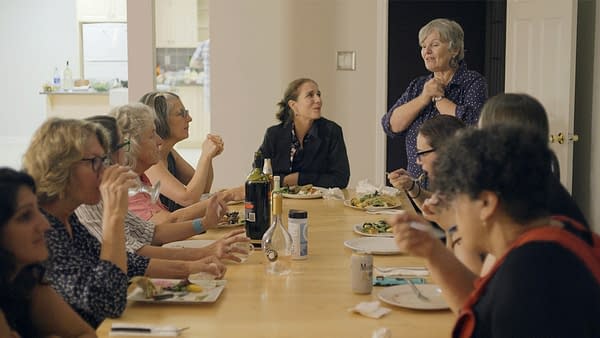
The landscape of healthcare and abortion access for people with uteruses has been especially difficult lately. What do you hope the film inspires, and what progress do you hope to see?
MEREDITH:
When I first came on to edit PLAN C, the majority of Americans, including myself, thought abortion pills were the same as Plan B and had no idea that someone could safely and effectively end a pregnancy up to 11 weeks using these medications. However, the tides changed quickly, and with Amy Coney Barrett's appointment to the Supreme Court, we knew the project was going to be important in a much bigger way. We began to see PLAN C as a subversive film, an instruction manual on reclaiming our human right to abortion. One in four people with uteruses will choose to have an abortion in their lifetime, and I pray this film helps those people feel less alone. More than anything, I hope this film teaches people who need abortions how to get them.
TRACY:
Difficult is an understatement.
As abortion rights become further restricted to the point of evisceration in some parts of the United States, I hope audiences will take heart in knowing that there are people who are NOT giving up. There are networks, revolutionaries, rabble-rousers who are refusing to back down. Sure, the landscape of healthcare and abortion access is a total "shit show!" (That's a quote from PLAN C's lead, Francine.) I hope audiences will walk away from the film knowing that all is not lost and that they are not alone, that there are a whole bunch of folks whom they will never meet, but they can trust, who are fighting tirelessly to get folks the care they need. This is the 21st Century! The internet is unstoppable, and so is the U.S. Mail.
What do you hope audiences take away from Plan C?
MEREDITH:
Advanced Provision, having the pills on hand without being pregnant, is available by mail in all 50 states. I've got abortion pills in my medicine cabinet, and so should you. There is no age requirement or limit to the number of pills one can purchase. Anyone in the U.S. can be prescribed abortion pills online through aidaccess.org to give to a friend or to keep for when they might need them. The political systems working tirelessly to take away our right to basic healthcare won't stand a chance if we band together and care for each other. There's no way these pills can be stopped.
TRACY:
I hope PLAN C inspires people not to give up and that it lights a fire so that they will take action. Buy abortion pills online now, and have them on hand for themselves or a friend in need! People, especially people in rural and restricted areas, need to know they have a medically safe and effective option that doesn't require leaving home or going broke. While this may be legally risky in some states, I hope laws will be changed to ease the risk of criminalization – or, as with Prohibition, that enough people defy the law to the point that prosecution simply becomes untenable. We need to get the word out about the options and safeguard the options so that we don't have police at state lines or at every mailbox armed with mandatory pregnancy tests.
I do hope lawmakers will see the film and take action. It's sad that we have to do it, but we need to legislate bodily autonomy as a human right and protect those taking risks on behalf of all Americans. Massachusetts has laws that protect telemedicine providers who prescribe abortion medication across state lines and people who self-manage their abortions. It's time for other states to follow Massachusetts' lead. While it's crazy to imagine, these laws need to be in place so that doctors and midwives who provide safe, effective, and FDA approved-medication in states where this is legal don't get extradited to a state where abortion is illegal to face prosecution there – or people who self-manage their abortions in these restricted states don't get thrown in jail.





